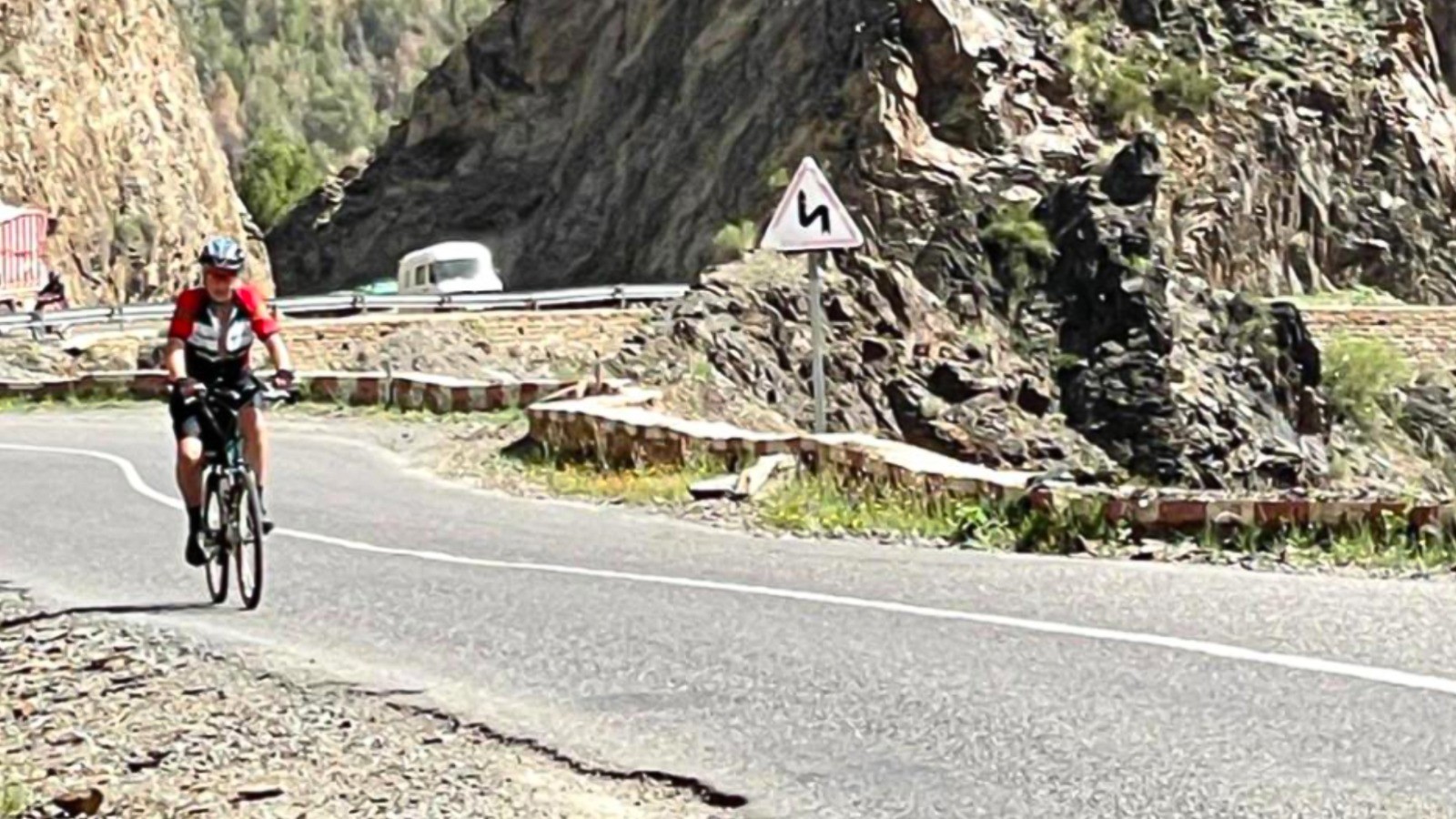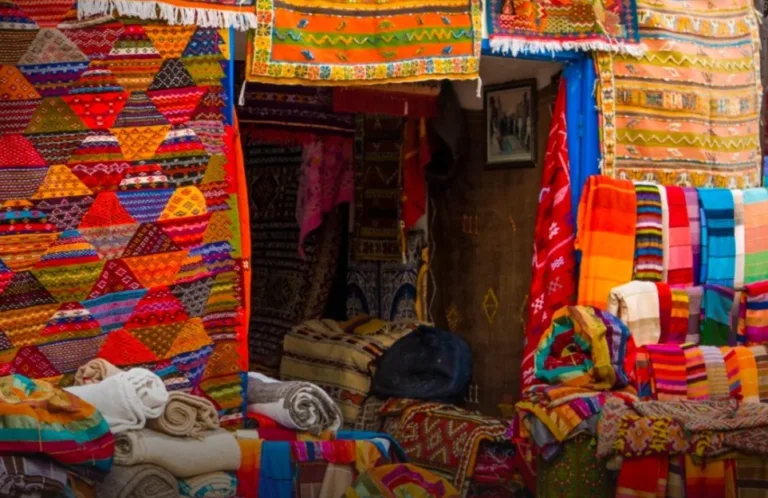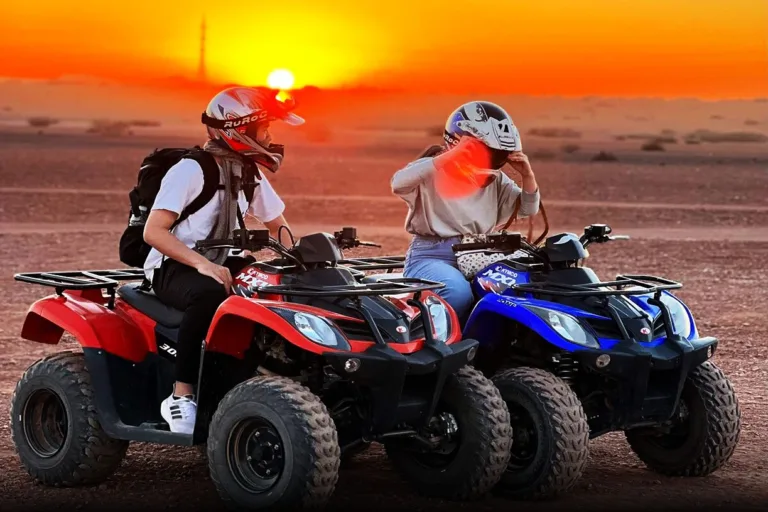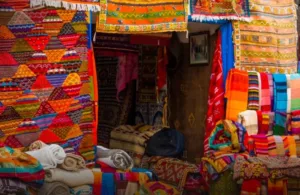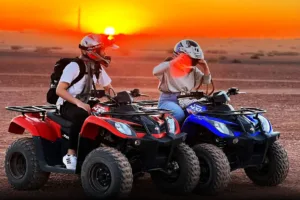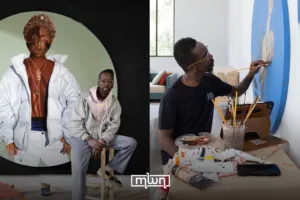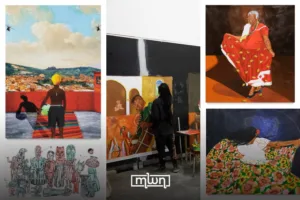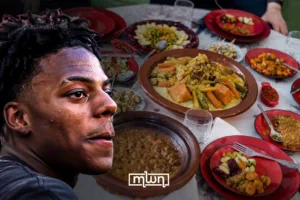Rabat – While others spend their golden years thinking about fishing or relaxing on a beach with a cocktail (or two) to hand, 70-year-old British national Michael McHugo found himself on a 1,000-kilometer cycling journey. Again.
On April 5, a day ahead of a 10-day riding schedule, a sun-baked and wind-battered McHugo crossed the finish line. Exhausted, and legs still dead from the journey, he decided to pick up the phone and talk to Morocco World News (MWN) about his journey.
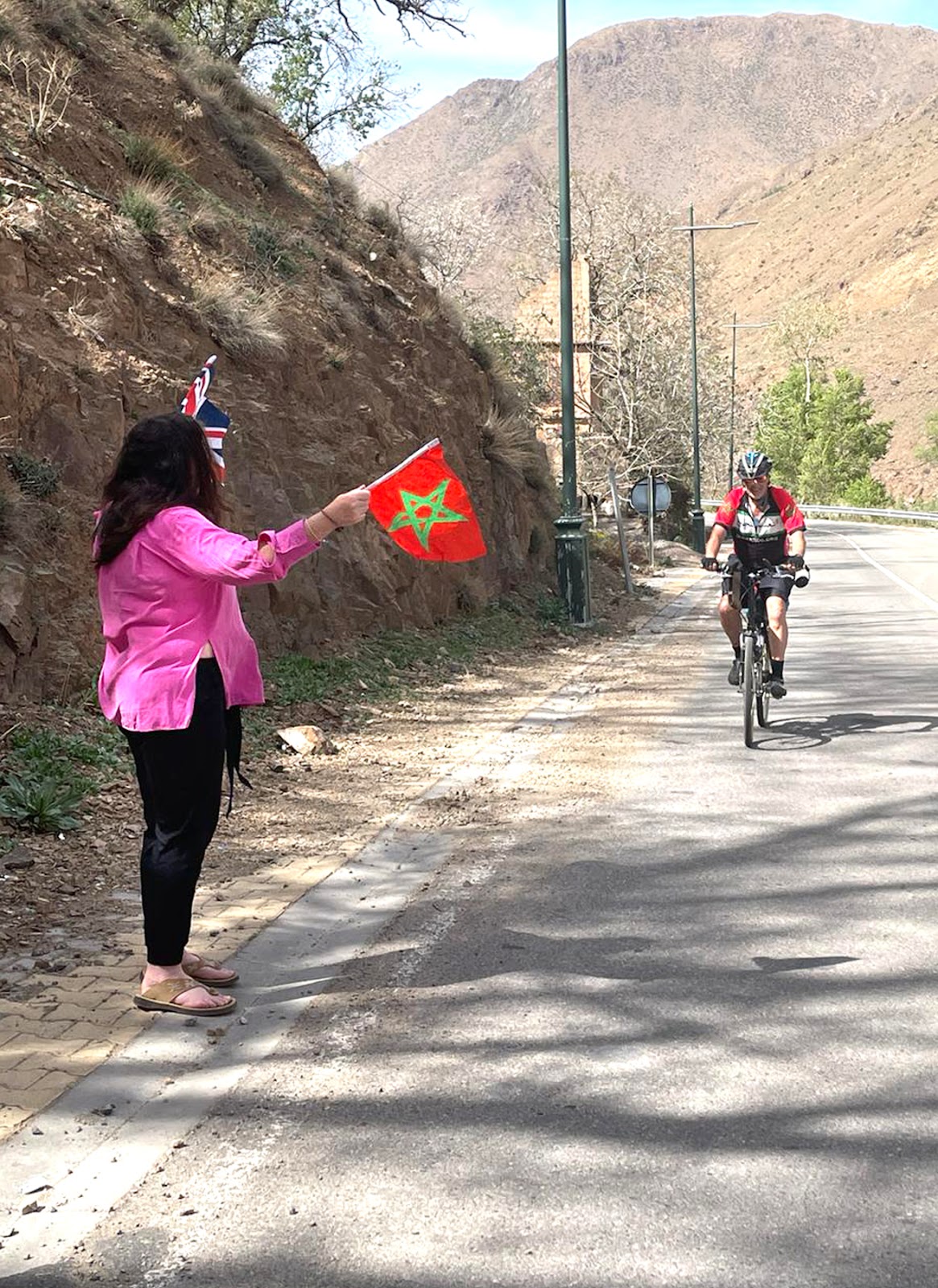
Reaching Imlil
Almost two decades ago, McHugo and a friend hatched a wild plan to raise funds for a village hammam (Moroccan traditional bathhouse) cycling from the south of France to Imlil, a grueling cross-continent journey of high-altitude terrain and mule-trodden dirt tracks that would take them through historic cities, rural townships, and the majestic Rif Mountains. At the finish line in 2004, McHugo joked about doing this again 20 years later. “I said I might do it – if I’m sort of fit and well and make it to 70,” he laughed.
So, as his 70th year came around, McHugo began thinking about fulfilling a 20-year personal promise and found himself planning a 1,000-kilometer bike journey, this time from Tetouan to Imlil. Imlil has always held a special place for the Southern French resident and British national – McHugo spent years in the region and owns the Kasbah du Toubkal, an award winning mountainside retreat in the Imlil Valley.
Around the same time, an important phone call for help gave him added impetus.
The Association des Bassins d’Imlil, a community association that runs projects in the Imlil Valley, that McHugo helped to found informed him of the need for a new, specially-equipped mountain ambulance for the Imlil Valley community.
“I thought, well, let’s try and raise some money for it,” he said.
Fundraising for the High Atlas community
Funded through donations from the bike ride and the Kasbah du Toubkal, the association’s ambulance will serve some of the most remote communities in the High Atlas Mountains, covering the seven villages of the Imlil Valley. This ambulance service is a critical lifeline for poor families without the means to take their children or themselves to hospital in the event of an accident, childbirth, or illness requiring medical attention.
Challenging conditions of the High Atlas Mountains require a specially-fitted vehicle that can negotiate hazardous high-altitude routes through heavy snow, mud, and crude dirt roads of the Valley.
But these mountains always exact their toll.
The Association des Bassins d’Imlil has gone through two ambulance vehicles since, starting with an ex-NATO ambulance in 1999. Now, after 17 years in service, their current workhorse, a Mitsubishi ambulance, is being put out to gentler pastures to serve lower-lying communities following its replacement by a new Toyota ambulance.
McHugo decided that these were all the signs he needed to kickstart what he thinks might be his last major cycling ride in Morocco.
“There is an expression: ‘the way to hell is paved with good intentions’”, he said. “You can plan these things, but unless you actually begin getting on and doing them, they drift off and won’t happen.”
“So if I was going to do it, it needed to be this year.”
However, things did not get off to a smooth start.
Challenges along the road
Misfortune struck when McHugo’s friend, who planned to go on the journey with him, hurt his leg and had to pull out of the journey. The initial planned dates, which were made to accommodate his friend who intended to do the journey with him, happened to also fall during the month of Ramadan, where many shops and cafes were shut during the day. McHugo admitted that in retrospect it was a “rather stupid” time to embark on the journey, given the far fewer options to obtain supplies on their journey.
The 70-year old athlete, however, steeled himself and decided to soldier on…alone.
Together with Rachid Äit Braim,a Kasbah du Toubkal driver in the support vehicle, the pair set off on their 10-day journey at the end of March. Rachid made sure that they purchased bread and any supplies the night before and prepared food for McHugo in the van where he could consume it discreetly, to be respectful of those fasting during the month.
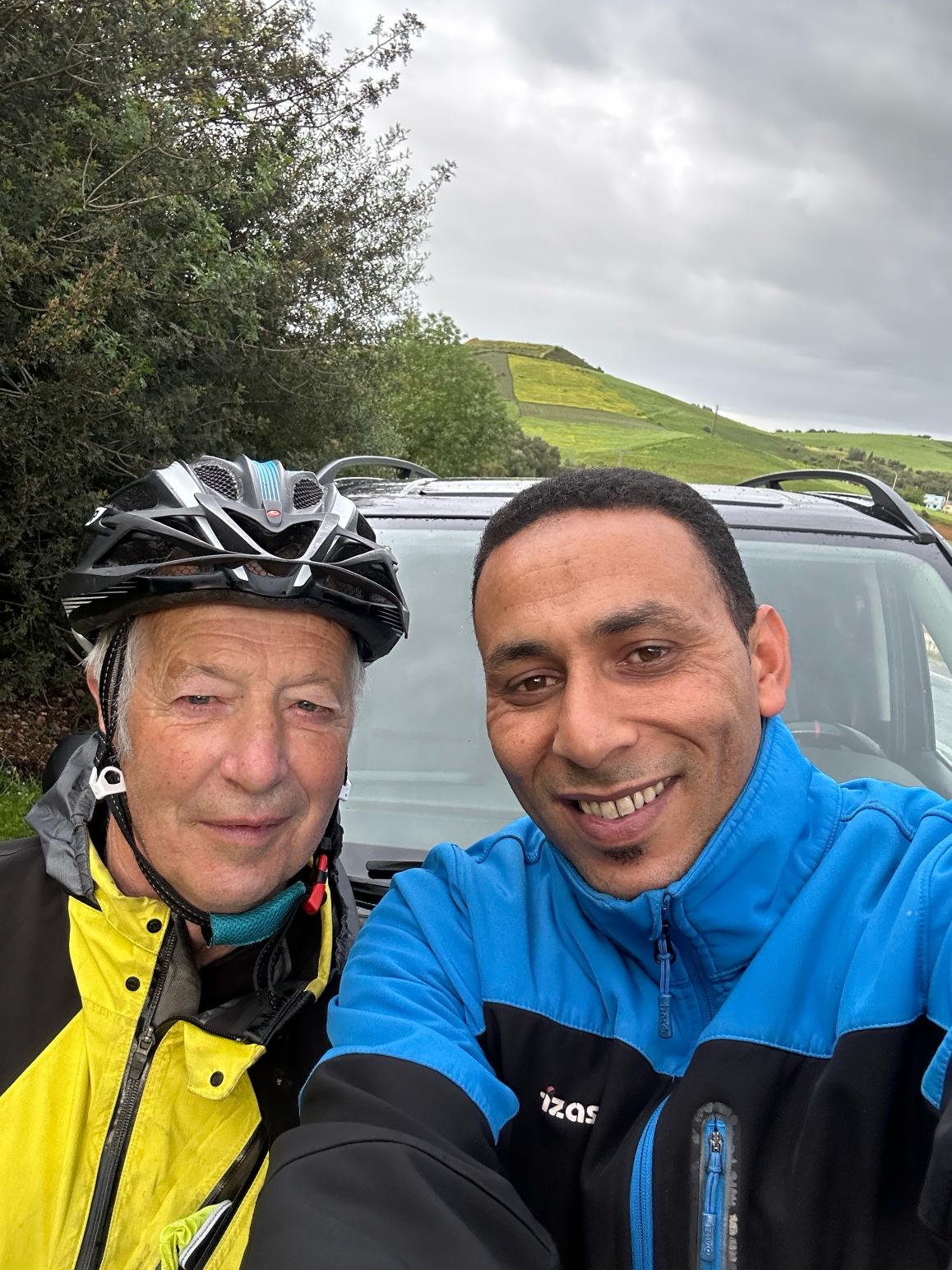
Michael McHugo and Rachid Äit Braim on the road
Fighting against the wind and weather, McHugo struggled to hit his planned daily target of 100 kilometers a day in the first few days. “On the first day, with the wind up in Chefchaouen, I did wonder whether I had bit more than I could chew,” he recounts.
“Wind is the cyclist’s enemy, especially when you’re a lone cyclist. When you’re cycling with a group, you can protect each other from the wind and take turns in the front”, McHugo continued. “But when you’re a lone cyclist, you’ve got a headwind that you’ve just got to cope with.”
On the third day, near Volubilis, a Roman-Berber archaeological site near Meknes, the pair were forced to call for an early halt because of bad weather conditions. We could only manage half a day because the weather was so bad and relatively dangerous – cars were having accidents in front of us, he said. “I’m not very particularly fast, so I have to cycle and stay in the saddle between five to seven hours to do the distances, which is quite hard work.”
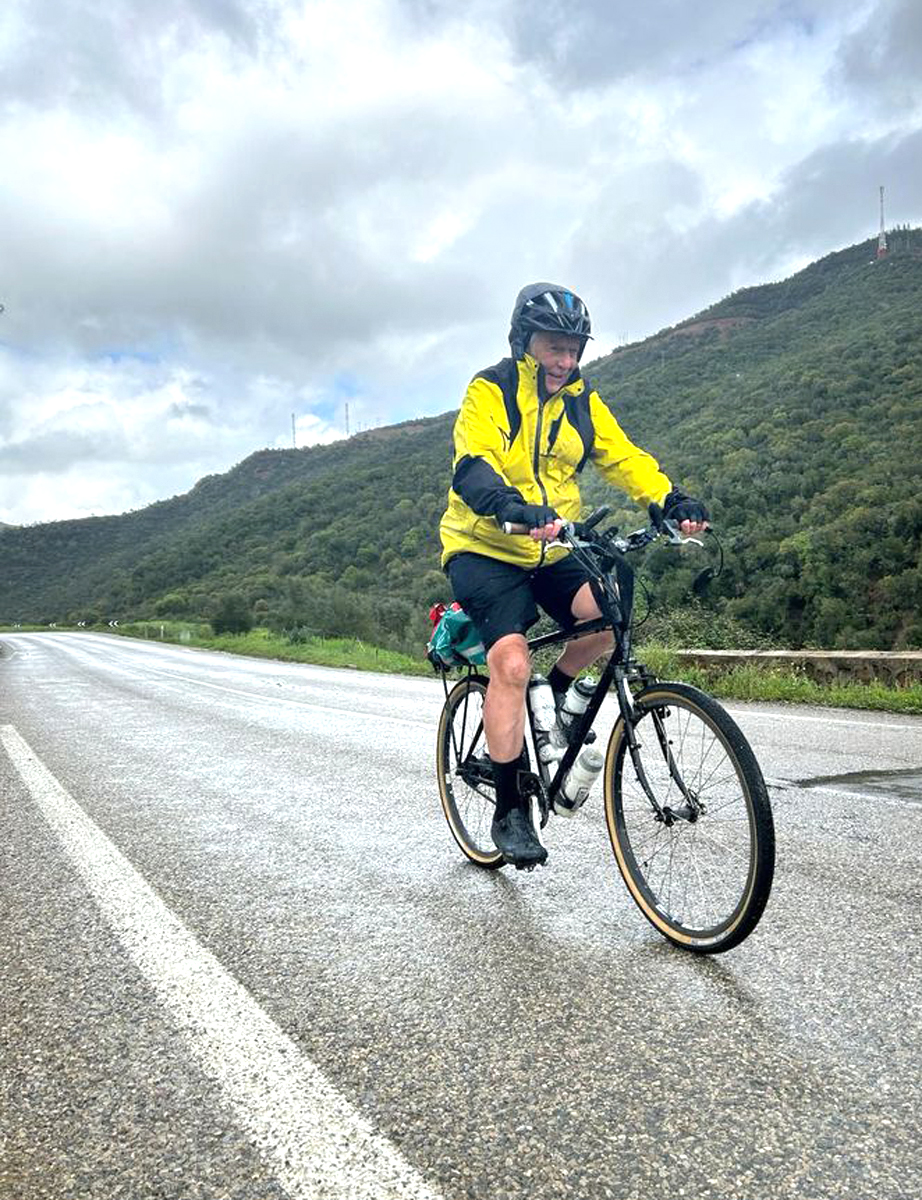
Braving the bad weather and road conditions
These setbacks cost him time and distance.
A ray of hope
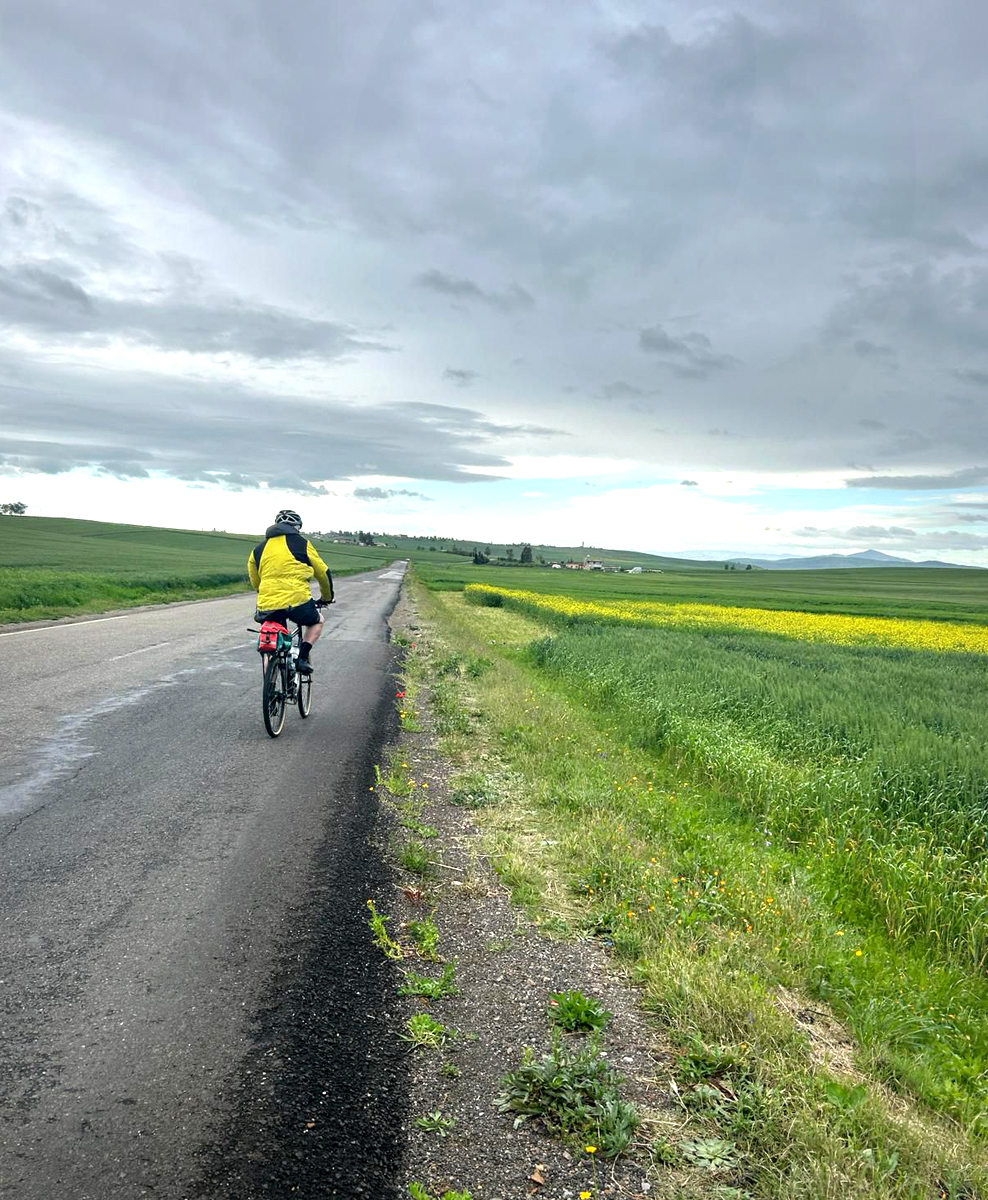
McHugo setting off in the morning
Fortunately, once the weather cleared up and the terrain began to get easier and less mountainous, McHugo began doing 100 kilometers a day, even clocking in 146 in one day.
“I had some doubts, but my doubts began fading when we got better weather and some mileage under my belt.”
Drawing comparisons to his last ride two decades ago, McHugo observed that things have improved immensely. Towns have grown more affluent and the roads have improved, including rural access to the mountains. A dual carriageway now connects Tetouan to Chefchaouen where once only an ordinary road existed.
However, hardships and poverty remain in the countryside, exacerbated by a devastating earthquake in the High Atlas Mountains last year.Yet, despite all adversities, the Moroccan spirit remains unbowed.
I always love seeing the hospitality and friendliness of the Moroccan people, especially the older generation in the rural areas, who despite a very tough life, are remarkably friendly and welcoming, McHugo said of the kindness and hospitality he received during the journey.
Preparing the mind and the body
Never one to overthink things, McHugo admitted there was no Olympics-worthy training regime leading up to his journey – just a spring break cycling trip with some friends.
In the first week of March, just a fortnight before his bike ride, some friends reached out to McHugo about a cycling trip where they did four days of uphill routes, averaging between 50 to 60 kilometers a day. “Some people ask me, ‘how do you get fit to cycle around the world?’ Well, you don’t. You just get fit on the journey,” he said.
“I think it was enough to give me a little bit of confidence that I had done some training, as opposed to literally having done none.”
And he was right.
On a Friday evening in early-April, the eleventh hour training coupled with no small amount of grit paid off. This proved enough to pull an exhausted but spritely septuagenarian through freezing rains in North Morocco to scorching 35 degree Celsius days in Marrakech in the South, all the way to the finishing line.
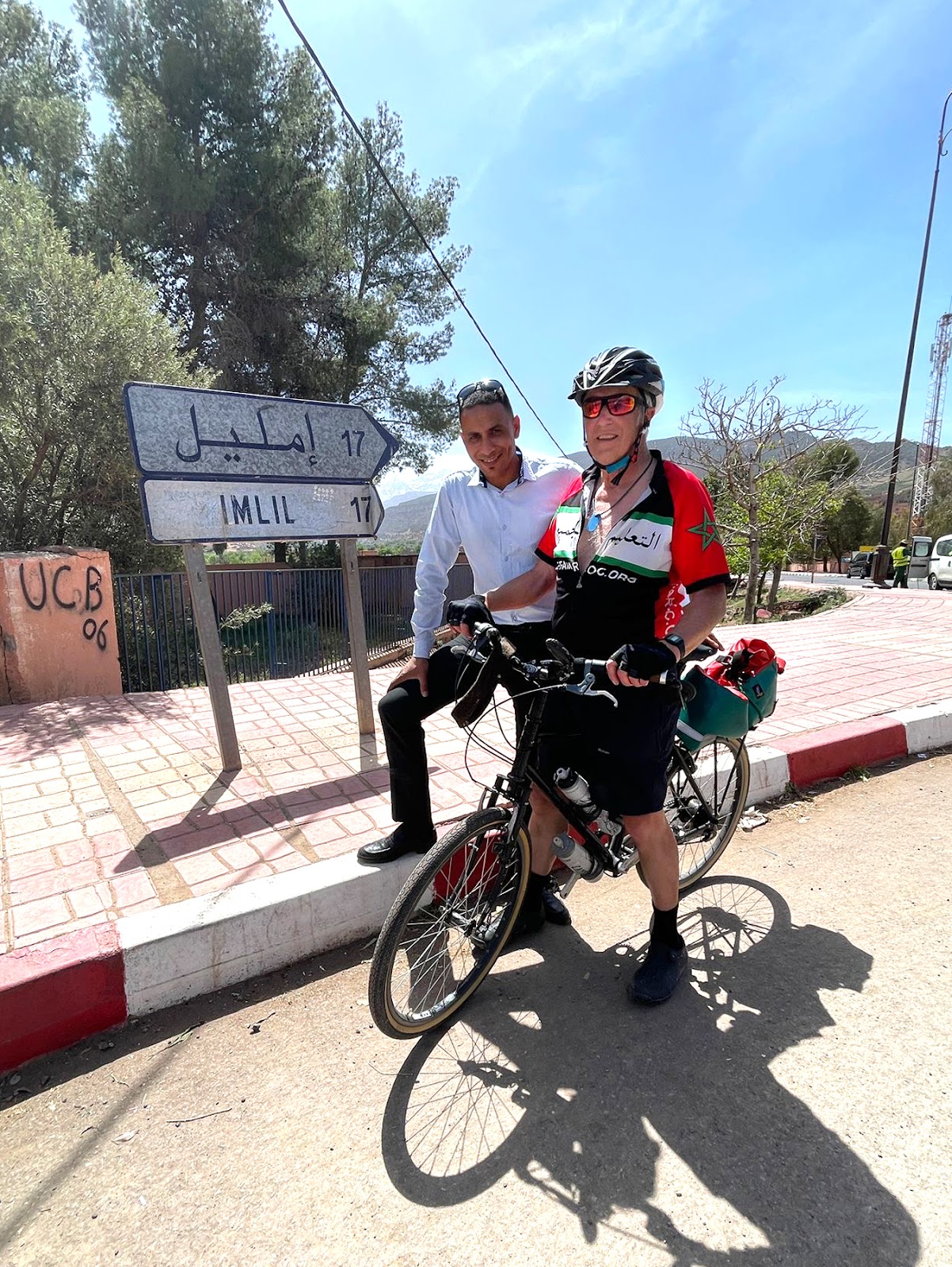
McHugo and Rachid, almost at the finish line
How did he stay motivated in the face of daunting goals?
McHugo says that using one’s social circle for accountability plays a big factor, as well as thinking through the goals ahead. “Once you’re certain that you really want to do it and you are going to do it, keep talking about it. Then you end up having to do it, or lose face.”
Face-saved and epic goal met, a well-earned rest is on the cards for the intrepid cyclist. His place of refuge? “A hamam”, he laughed. “I’m going to the hamam and relax. And just enjoy not cycling for a day, at least.”
If you would like to donate to the Association des Bassins d’Imlil and Kasbah du Toubkal mountain ambulance, you can do so on his GoFundMe page.

